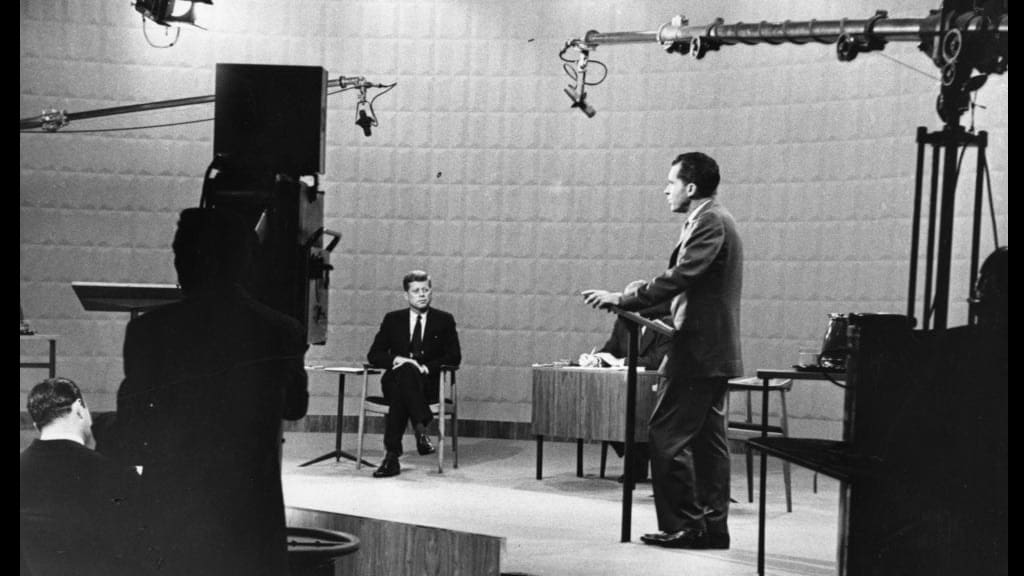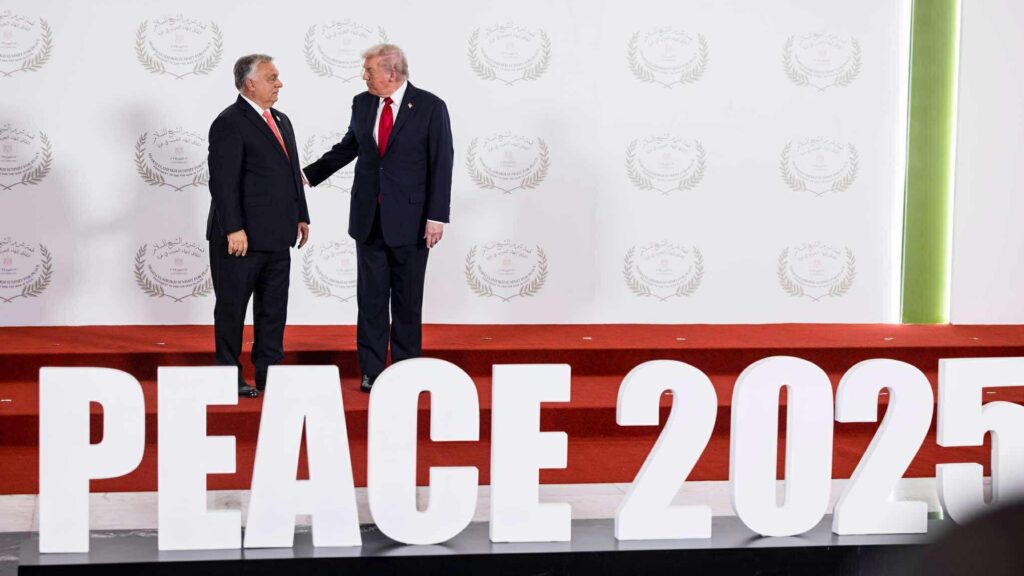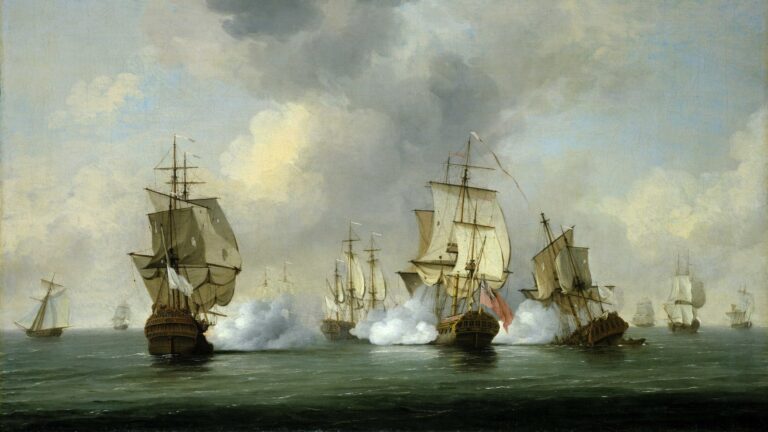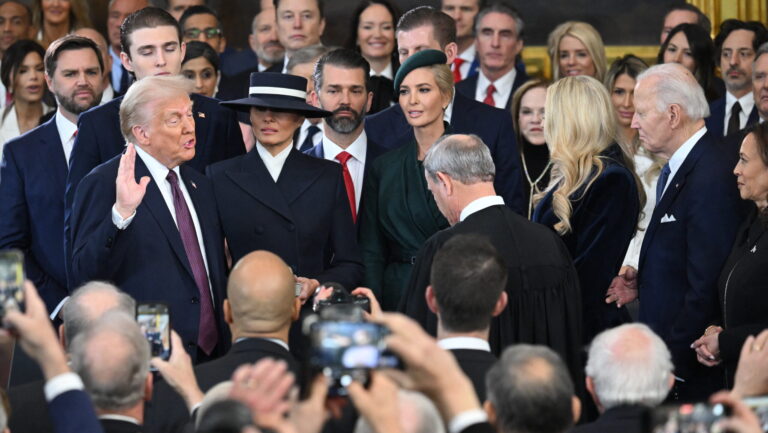The first ever debate between the two major presidential candidates in the United States has been studied by political science and communications researchers for decades. In 1960, the race between Democrat nominee John F. Kennedy and the Republican Richard Nixon was extremely tight. The national popular vote was won by Kennedy by just 0.17 percentage points. While he won the electoral vote by a comfortable margin in the end, 303–219, many states were decided by less than a point.
President Kennedy won the state of Illinois by 0.18 points, Missouri by 0.52 points, New Jersey by 0.8 points, and the newly admitted state of Hawaii by 0.06 points (!), just 115 votes. On the other hand, Richard Nixon won the most populous state in the Union, his home state of California, by 0.55 points.
The spectacle of the
two major candidates debating each other on live television for the first time was viewed by 65 million people,
almost as many as the 68.83 million people who cast their votes in the election. The often-touted lesson from the debate was that those who listened to it on the radio thought that Nixon had won, while those who watched it on television thought Kennedy had won, underlying the importance of optics in elections.
Kennedy was young, handsome, and—truth be told—did not even really need the job of the presidency. He was the heir to a massive Kennedy family fortune, and was just a junior Senator from Massachusetts with many years left to prove himself on the national political stage. While his opponent, Vice President Nixon was only four years his senior, he did not have the movie star looks of Kennedy. He also came from quite a different background, growing up in a poor Quaker family in California, so he always felt the need to prove himself by winning, which clearly put a lot more stress on him during the debate performance. What’s more, he had recently suffered a knee injury, which caused him to need to bend his knee at times for comfort, making the mere one-inch height difference between the candidates seem like a lot more.
Kennedy vs. Nixon – 1st 1960 Debate
Clip from the 1st 1960 presidential debate between Senator John F. Kennedy (D-MA) and Vice President Richard Nixon (R-CA). Held on September 26, 1960, it was the first presidential debate between candidates from opposing political parties as well as the first one to be televised.
Given the narrow differences in the 1960 presidential election,
many scholars and commentators believed that it was the TV debate that decided the outcome.
Because of the aftermath, most campaign strategists deemed debating too risky for the candidates, thus no presidential debate took place in the US until 1976, when incumbent Gerald Ford faced off against Jimmy Carter. That election was not as narrow as the one in 1960, with the Democrat Carter winning the popular vote by 2.1 points. Also, the American people had a lot more on their minds than a debate at the time, since they had just witnessed the first president resign in the history of their nation; and saw the first ever unelected president sworn into office. President Ford was not on the ticket in the 1972 election—President Nixon’s VP at the time was Spiro Agnew, who had resigned in a tax scandal unrelated to Watergate in 1973.
The debate still showcased a memorable gaffe by President Ford, who famously claimed ‘There is no Soviet domination of Eastern Europe, and there never will be under a Ford administration’. Given the historical facts, it is still unclear what President Ford meant by that.
Carter-Ford Oct. 6, 1976 Debate – “No Soviet Domination”
In this clip from the Oct. 6, 1976 debate between Jimmy Carter and Gerald Ford, Ford botches a rehearsed line from his briefing book and declares, “There is no no Soviet domination of Eastern Europe.” At the time, all countries in Eastern Europe had Communist governments and were under the Soviet sphere of influence.
Another debate that has been brought up frequently was the one between President Obama and Governor Romney in October 2012. Obama lost that debate by a wide margin according to the polls, and thus, Romney took him over in national polling as well. However, by November, President Obama rebounded, and won re-election with a comfortable, 3.9-point margin in the popular vote and 332 electoral votes. However, what is a major difference between President Obama and President Biden’s debate performance is that
Obama came into the debate with a 50-per-cent approval rating and a three-point lead in the national polling aggregate.
Meanwhile, President Biden’s approval rating by Gallup was just 38 per cent before the debate
(which is expected to drop, given that even many Democrats have given up on him after his awful performance), and was behind in the national polling by around two points against his challenger, Former President Trump. So, even if he were to rebound, which is quite possible, he would still revert to a losing position.
Related articles:







